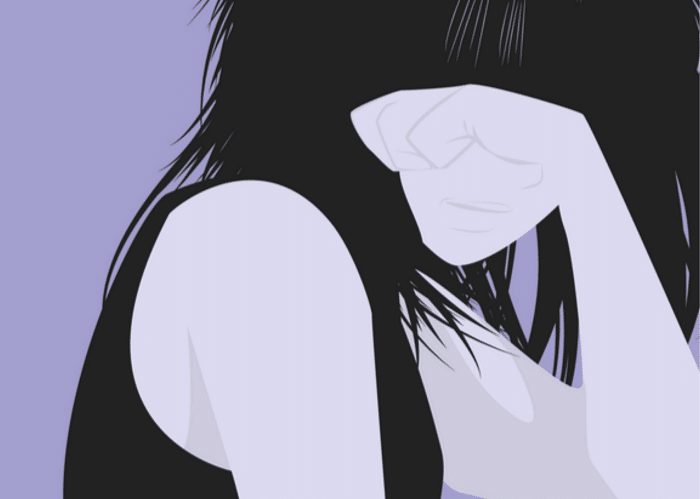There’s a quote that reads, “A human being can survive almost anything as long as she sees the end in sight. But depression is so insidious, and it compounds daily, that it’s impossible to ever see the end.”
Elizabeth Wurtzel’s words above convey the weight of depression. It’s a heavy topic, so we often avoid it. Yet, at the moment, nearly 40% of us are confronting it. And with a statistic like that, it’s about time we start the conversation.
Truthfully, I’ve battled depression my whole life. And it’s a war I’ve fought alone. I don’t discuss it because it’s ugly— people don’t like ugly. It makes them uncomfortable. The stigma is so thick it’s suffocating.
And when people find out? I’m treated like a leper— like I’m somehow less than a human being. So, to adapt, I’ve learned to slap on a smile and be enthusiastic. People like “enthusiastic.” It makes them feel comfortable.
The thing is, if you’ve lived with depression, you know it’s a beast. At best, it’s complete ambivalence to everything, including the act of living itself. It’s sometimes heavy sadness, but more often the absence of emotion altogether. It’s waking up in the morning just to go back to bed at night.
At worst, it’s utter self-hatred. It’s looking in the mirror with disgust at the person starring back at you. It’s being critical and picking apart everything you do. It’s resentment, anger, and at times, believing people would be better off if you didn’t exist.
What is depression?
It’s complex. Everything from nerve cell connections to the brain’s physical anatomy plays a hand in the disorder. That said, the Mayo Clinic characterizes an episode of depression by the following symptoms, occurring on most days for a prolonged period:
- Feelings of sadness, tearfulness, emptiness, or hopelessness
- Angry outbursts, irritability or frustration, even over small matters
- Loss of interest in most or all normal activities, such as sex, hobbies, or sports
- Sleep disturbances, including insomnia or sleeping too much
- Tiredness and lack of energy, so even small tasks take extra effort
- Sudden weight loss or weight gain
- Anxiety, agitation, or restlessness
- Slowed thinking, speaking, or body movements
- Feelings of worthlessness or guilt, fixating on past failures or self-blame
- Trouble thinking, concentrating, making decisions, and remembering things
- Frequent thoughts of death, suicidal thoughts, suicide attempts, or suicide
- Unexplained physical problems, such as back pain or headaches
Moreover, if you’ve experienced one episode of depression, it dramatically increases the likelihood you’ll face another.
I’ve battled it off and on my entire life.
As a child, I remember that it hurt— the emptiness in the pit of my stomach when I was alone. Sadness always came and went, but it became overwhelming once I hit high school.
As a teenager, I tried everything to be content— religion, relationships, therapy, diet, exercise, supplements. Use your imagination— if you can think it, I tried it. Nothing worked.
I even tried an eating disorder on for size. At fifteen, I dropped to around eighty pounds in my quest for happiness. At the time, I honestly thought that if I were more attractive on the outside, I would feel better on the inside. Spoiler alert— it didn’t make a difference.
What causes depression?
It’s hard to place a finger on what leads to the disorder. Research shows that an episode of depression can be brought on by anything from a stressful life event to faulty mood regulation in the brain, medications, and even medical problems.
Moreover, there’s a strong genetic component to it. If you have a parent or sibling who suffers from depression, you’re anywhere from 2 to 5 times more likely than the general population to confront it.
Depression looked different in adulthood.
“You don’t understand depression until you can’t stand your own presence in an empty room” – Unknown.
At nineteen, my parents officially split, and shortly after, my sister was in a horrific car accident that nearly killed her. A few months later, my aunt died suddenly in her sleep. She was a little over forty years old. Hands down, it was a traumatic period in my life.
This time when depression hit, it didn’t feel like sadness. I felt numb. I felt angry. I became so critical of myself that I fixated on every word that poured out of my mouth. I developed a solid phobia of speaking, and barely uttered a word to anyone outside of my boyfriend for well over a year.
Honestly, things got really bad. I isolated in my little cabin in the woods. I hated myself so much that I didn’t want to bother anyone with my presence.
The risk for suicide is real.
“Depression is living in a body that fights to survive, with a mind that tries to die.” – Unknown.
Every forty seconds, someone will take their life. And sadly, depression is involved in over half of those tragic ends. Below are some of the warning signs of suicide.
- Talking about feeling hopeless, trapped, or alone
- Saying they have no reason to go on living
- Making a will or giving away personal possessions
- Searching for a means of doing personal harm, such as buying a gun
- Sleeping too much or too little
- Eating too little or eating too much, resulting in significant weight gain or loss
- Engaging in reckless behaviors, including excessive alcohol or drug use
- Avoiding social interactions with others
- Expressing rage or intentions to seek revenge
- Showing signs of extreme anxiousness or agitation
- Having dramatic mood swings
- Talking about suicide as a way out
Click here to learn more about how you can help a loved one.
At 25, I didn’t see a way out.
“I wanted to talk about it. Damn it. I wanted to scream. I wanted to yell. I wanted to shout about it. But all I could do was whisper, ‘I’m fine.’” – Unknown.
Depression came and went over the years. However, I wouldn’t seriously confront it again until after my son was born. I remember thinking, a child’s birth is supposed to be a joyful time. So, to tell anyone that I was struggling felt shameful. It became my secret.
A year later, I was barely in my mid-twenties and divorced. At the time, I thought I had lost everything. I didn’t see a way out, and honest to God, it felt selfish to carry on living. Even though I knew it would be hard for the people I loved, I truly thought they would be better off if I weren’t around.
More so, I didn’t feel comfortable talking about it. Strength of character is a big deal in my family. Admitting I was depressed and that it had spiraled so far out of control was a sign of weakness.
Treatment is complex.
Treatment looks different for everyone, but with commitment, it can make a difference. There’s a host of different options out there, but most successful strategies involve a combination of medication, support, and lifestyle changes.
Below are some of the things that can help depression:
- Medication
- Medical procedures
- Therapy
- Build a support network
- Online resources
- Self-help books
- Reduce stress
- Sleep hygiene
- Healthy diet
- Exercise
Learn More: An Overview of the Treatments for Depression
It takes commitment to get better.
In 2012 I was hospitalized. I hit rock bottom and was faced with a choice— spend my life sick and miserable or pick myself up and climb out of the hole I dug myself into. I chose to get better, and it was hard.
My depression had taken everything from me. I lived with my dad, didn’t have a job or even a bank account. Every day was an uphill trek. It was a battle just to get out of bed in the morning. I had to rebuild my life from scratch.
For me, medication was a big piece of the puzzle to recovery. But I couldn’t have made it through without support. I was always pushed beyond my comfort zone to press forward and carry on. And for that, I am grateful. Simply put, I wouldn’t be here today if it weren’t for a few key people in my life at the time.
Concerned about a loved one?
Helping a loved one with depression isn’t always intuitive. Below are a few things you can do to support someone in need.
- Show empathy
- Listen
- Reserve judgment
- Encourage them to get help and offer resources.
- Offer unconditional positive regard.
- Don’t enable.
- Don’t baby them! No one likes to be treated like a child.
- Boundaries! Stay in your lane, and don’t push yourself on others!
Stigma hurts.
It’s been nearly a decade since my last significant run-in with depression, but still, I don’t speak of it. Most people don’t know my history because I’m ashamed. I’m afraid of judgment, being ostracized, or, heaven forbid, being treated like a wounded animal that needs saving.
Honestly, it’s a travesty that people still believe mental illness is a sign of weakness or deficit in character. The stigma surrounding it costs thousands of lives every year because people don’t feel comfortable reaching out for help.
Are you struggling?
If you’re having a hard time, know that there are people out there who care! Reach out to a friend, family member, or seek out a mental health professional.
If you’re in crisis, here are a few resources to help:
If you live in the United States, call the National Suicide Prevention Lifeline at 800-273-TALK (800-273-8255). They have trained counselors available 24/7. Stop a Suicide Today is another helpful resource.
Befrienders Worldwide and the International Association for Suicide Prevention are two organizations that provide contact information for crisis centers outside of the United States.
Want More?
If you found this article helpful, check out the rest of our blog today and make sure to follow us on social media. You can find us at youthdynamicsmt on Instagram, or Youth Dynamics of Montana and People of Youth Dynamics on Facebook.





